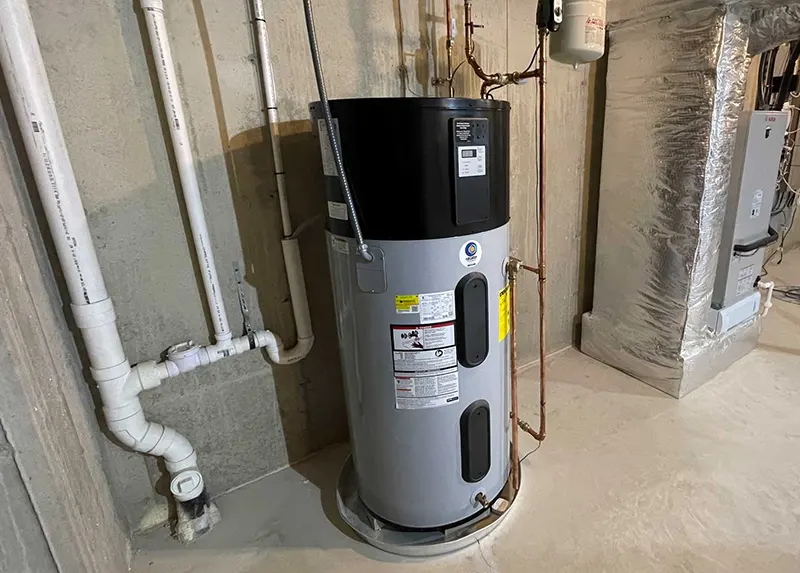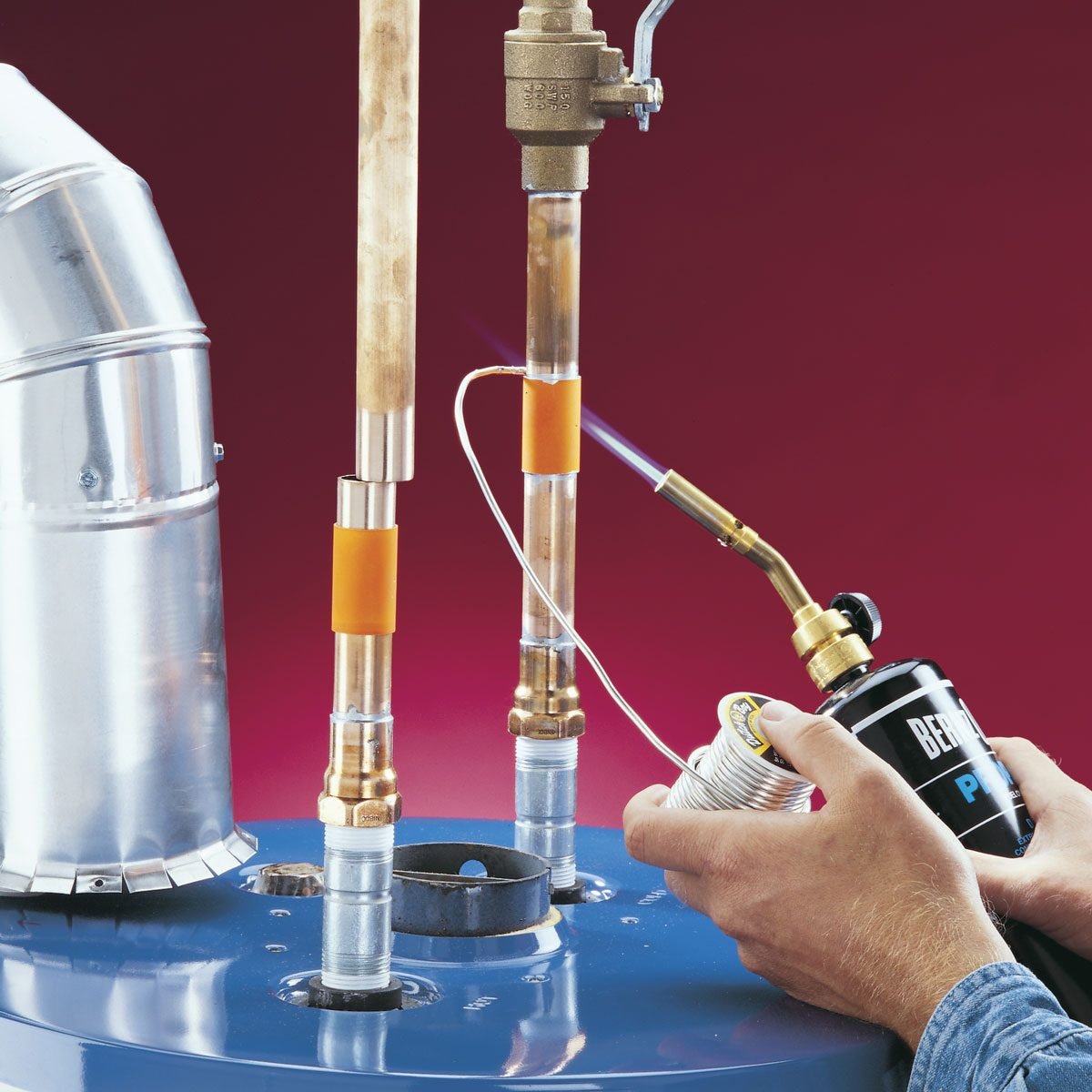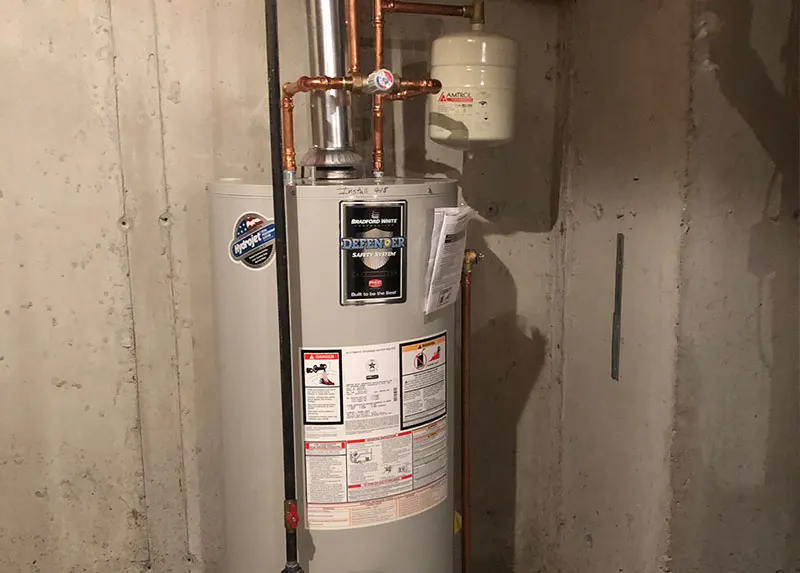Gas Leak Repair by Certified Technicians for Maximum Peace of Mind
Gas Leak Repair by Certified Technicians for Maximum Peace of Mind
Blog Article
Total Guide to Water HeaterSetup and Substitute
Recognizing the complexities of water heating system installation and replacement is vital for homeowners looking for to make certain efficiency and dependability in their warm water supply. From choosing the suitable type and size to performing a smooth installment procedure, numerous factors should be taken into consideration to stay clear of usual mistakes.
Kinds Of Water Heaters
When thinking about water heater installment and replacement, it is vital to recognize the various sorts of hot water heater available in the market. One of the most typical kinds include storage tank water heating units, tankless hot water heater, warmth pump water heaters, and solar hot water heater.
Storage tank water heating systems are conventional systems that store a certain quantity of warm water, making them easily available when required. They are typically more economical in advance but may sustain greater power expenses with time as a result of warm loss. On the other hand, tankless hot water heater provide hot water on need, getting rid of the demand for storage. They are energy efficient and can conserve space, but their preliminary prices are generally greater.
Heatpump water heating units make use of electrical power to transfer warmth from the air or ground to heat water, supplying significant energy cost savings however requiring even more space and specific installation problems. Solar water heating systems harness solar energy to warmth water, offering a green choice with possible long-term expense savings, although they typically need a back-up system for over cast days.
Recognizing these choices makes certain notified choices pertaining to setup and replacement, accommodating specific needs and choices.
Choosing the Right Dimension
Choosing the proper size for a water heating unit is crucial to ensure optimal performance and efficiency. A system that is too tiny will certainly battle to satisfy home demands, resulting in inconsistent warm water accessibility and increased power usage. On the other hand, an oversized water heating system can result in unnecessary energy waste and higher utility expenses.
To identify the best size, think about the house's top warm water usage. This can be computed based on the variety of occupants and their common hot water demands. A family of four might need a water heater with a capability of 50 to 80 gallons, depending on the usage patterns, such as synchronised showers and washing.
Additionally, assess the healing rate, which gauges just how rapidly a heating unit can replenish warm water after it has been used. For tankless designs, emphasis on the circulation rate, determined in gallons per minute (GPM), to ensure it satisfies the household's simultaneous demand.

Installation Process Summary

Following, the old system must be separated and gotten rid of, making sure to comply with neighborhood codes and policies pertaining to disposal. As soon as the old system is out, the brand-new hot water heater can be positioned in position. This action entails linking the water supply lines, guaranteeing that all fittings are protected and leak-free.
After establishing water links, it's vital to connect the power supply, whether electrical or gas, complying with the supplier's instructions diligently. As soon as all connections are made, the system should be filled up with water, and the power can be turned back on. It's crucial to examine for leaks and make sure the water heater is working appropriately prior to completing the installment procedure.
Usual Setup Errors

An additional frequent mistake is overlooking to comply with regional codes and regulations. Stopping working to stick to these requirements can not just lead to security risks however might additionally result in costly penalties or the requirement for expensive reinstallation.
Falling short to safeguard links or using the wrong type of fittings can lead to leaks and water damage. By avoiding these typical setup mistakes, homeowners can ensure their water heating system runs safely and effectively, making the most of performance and long life.
Upkeep Tips for Durability
Appropriate maintenance of a hot water heater is essential for its long life and optimum performance. Routine evaluations and servicing can protect against pricey repair work and expand the home appliance's life-span. Begin by checking the temperature setup; it should usually be established between 120 ° F and 140 ° F for ideal power performance and security.
Every six months, purge the storage tank to eliminate debris buildup, which can hinder home heating performance and cause corrosion. To do this, switch off the heating unit, link a tube to the drainpipe shutoff, and let the water run till it is clear.
Anode poles must be inspected each year and replaced when they are corroded. These poles site web assist protect against container deterioration by attracting destructive elements in the water.
In addition, check the pressure safety valve routinely to guarantee it is working correctly. This shutoff is important for stopping too much pressure build-up within the storage tank.
Lastly, consider scheduling a specialist maintenance check every couple of years for detailed inspections and maintenance. By sticking to these maintenance tips, house owners can dramatically improve the effectiveness, safety and security, and life expectancy of their hot water heater, guaranteeing trustworthy hot water for several years to find.
Final Thought
In verdict, proper setup and upkeep of water heating systems are crucial for guaranteeing effectiveness and long life. By understanding these essential aspects, house owners can attain a trusted warm water supply while lessening potential issues related to water heater operation.
Understanding the details of water heater setup and substitute is critical for homeowners seeking to make certain effectiveness and reliability in their hot water supply.Tank water heating systems are conventional systems that store a particular volume of warm water, making them conveniently available when required. In contrast, tankless water heaters supply warm water on need, getting rid of the requirement for storage space. Selecting a water heating system that is either too tiny or too big can lead to inadequacies, resulting in poor hot water supply or too much power consumption.
By navigate to these guys understanding these essential aspects, homeowners can achieve a trusted warm water supply while reducing prospective concerns related to water heating unit operation. plumber Denton.
Report this page